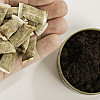Recent Blog Articles

Lead poisoning: What parents should know and do

How does waiting on prostate cancer treatment affect survival?

Does running cause arthritis?

Is alcohol and weight loss surgery a risky combination?

Preventing ovarian cancer: Should women consider removing fallopian tubes?

Healthier planet, healthier people

Is snuff really safer than smoking?

Will miscarriage care remain available?

Considering collagen drinks and supplements?

Does less TV time lower your risk for dementia?
Food Poisoning
What Is It?
Most commonly, food poisoning is a reaction to food or water contaminated during improper cooking, handling or storage. The most common contaminants are bacteria, such as salmonella, Campylobacter and E. coli. Other contaminants include viruses, parasites and toxins. Food poisoning usually leads to abdominal cramping, vomiting and diarrhea.
Food poisoning, although common, often can be prevented easily. An estimated 85% of food-poisoning incidents can be prevented by handling and preparing food properly. Usually, symptoms subside within a day or two. However, in some cases, food poisoning is quite dangerous.
To continue reading this article, you must log in.
Subscribe to Harvard Health Online for immediate access to health news and information from Harvard Medical School.
- Research health conditions
- Check your symptoms
- Prepare for a doctor's visit or test
- Find the best treatments and procedures for you
- Explore options for better nutrition and exercise
I'd like to receive access to Harvard Health Online for only $4.99 a month.
Sign Me UpAlready a member? Login ».
Disclaimer:
As a service to our readers, Harvard Health Publishing provides access to our library of archived content. Please note the date of last review or update on all articles.
No content on this site, regardless of date, should ever be used as a substitute for direct medical advice from your doctor or other qualified clinician.
Free Healthbeat Signup
Get the latest in health news delivered to your inbox!
